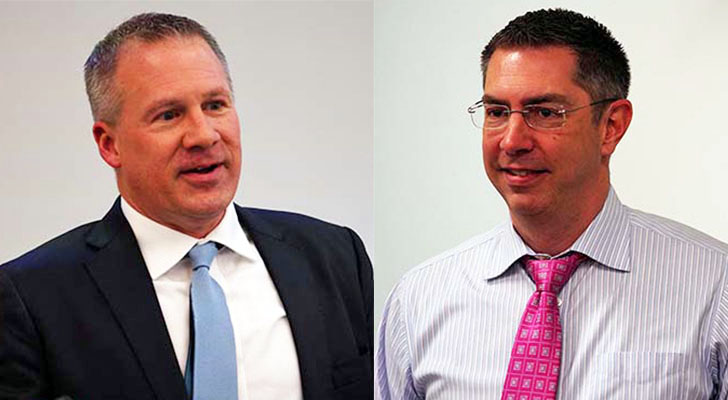Alumni tout banking, investment careers in FSB visit


On the surface, when someone looks at banking, it appears to be a business that’s all about money. But Doug Schosser, executive vice president and chief accounting officer at KeyBank, said that deep down, working in the banking industry is often about finding answers.
“I find that what people really want is help solving a business problem of some kind. And accounting is maybe the context that they called me in, but not necessarily the specific area of advice that I'm going to give them,” he explained. “Helping them think through ways that they can go about getting to the answer that they want is the most satisfying thing. And I think you can do that literally in any job. That's what adds value. It's not so much having the capability technically to solve any problem. It's really being able to engage at a different level, to try to ask the questions around ‘What is it we're trying to accomplish?’ and then help somebody think through that and come up with the solution that they're really looking for.”
Schosser was one of several KeyBank executives who visited the Farmer School of Business to talk with students and faculty about banking, investing, and the coming trends in the industry. Eric Peiffer, managing director and head of high grade & high yield capital markets, said banking isn’t just for people who like working with numbers.
“Banking offers a number of career avenues. There are probably a dozen different avenues ranging from finance to marketing to compliance, to asset management, to retail, to HR. And banks are very dynamic places. They're always changing,” he remarked. “Banks are investing a lot of money and resources in fintech and technology generally, so that's growing pretty rapidly in all banks, as is artificial intelligence. So there are opportunities in banks that didn't exist even five years ago.”
When asked about the skills Farmer School students need most when they enter the working world, Peiffer and Schosser both mentioned the same thing: Communication. “Communication is huge. Have the ability to use communication to build relationships, and then have communication skills for asking good questions and receiving information and then processing the information that they receive. I always hit heavily on that when talking to students,” Schosser said.
Peiffer expanded on that, noting that students need “the ability to communicate well, the ability to be resourceful, the ability to be professional and the ability to bring a skill set that's immediately applicable to employers. It's hard to say that anybody in their first or even second year of work is going to be immensely valuable to a company. So getting up that learning curve as quickly as possible is paramount to employers. Being able to bring a predeveloped skill set and a set of tools to that environment is very important.”
Peiffer and Schosser, both Miami University and Farmer School graduates, said the students at the school now and the opportunities they have are impressive. “I feel students in general in the Farmer School are very hard workers. They become more personally and professionally responsible earlier in their college career,” Peiffer said. “A really strong skill set is needed and I have a strong conviction personally that the Farmer School is one of the best places to obtain that skillset.”
“I would honestly say I think the students at Miami are probably as well positioned as any students that we recruit from any university. Technically they've been trained very well, they've got great interpersonal skills, they know how to communicate, and all of that makes them very successful when they start,” Schosser said. “I think everybody should be proud of the choice they made to attend Miami, and I think we see it every day in the graduates that we have.”

